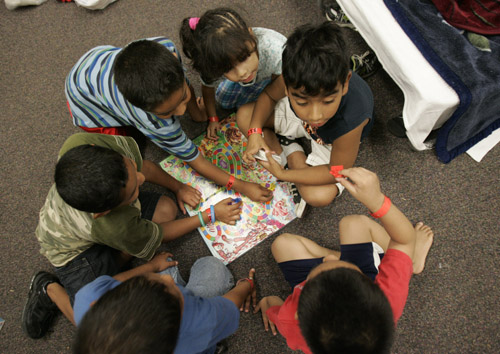
即使有粮票, 穷人还是穷. 经合组织列出了中美. 作为是五大OECD国家最高的儿童贫困率的一个. 贫困是影响儿童的成果显著在美国的教育体系. 根据贫困国家儿童中心, 大约 22 中美的百分比. 小于的孩子 6 岁, 和 18 岁之间的儿童百分比 6 和 17, 箪食瓢饮.
所以,我们应该怎样做来支持近似 20 中美的百分比. 学校的孩子谁生活在贫困中?
从 1991 以 1993, 黛安·拉维奇是教育的助理国务卿在总统乔治HW的管理. 灌木.
从 1997 以 2004, 她是国家评估理事会成员, 负责监督教育进展的全国评估, 联邦测试程序. 拉维奇是对教育许多书籍的作者, 其中 美国大学校系统的死与生: 如何测试和选择,是破坏教育.
你如何找到一个贫穷的学校,可能最需要的最好的老师是一个好老师?
今天, 一个好老师的定义似乎是别人谁可以得到考试成绩达. 但是,这并不一定是好老师. 一个伟大的老师是谁启发学生, 一个谁鼓励他们爱学习. 考试成绩不衡量的. 一个人谁可以得到考试成绩了,有时一个可怕的老师. 有人谁花几个小时钻探盲目儿童,使他们的实践检验后,采取实践的检验,是不是一个好老师.
伟大的老师由, 不是天生的. 第一个必要条件为贫困学校的老师大是找老师谁不想使贫困儿童的生活发生变化. 许多教师要教的贫困社区,并准备自己这样做. 我接触过很多老师在训练谁觉得使命意识强. 他们知道,他们需要让自己的所有,他们会遇到不同的问题,准备额外的准备. 伟大的教师在一段时间的经验浮现. 伟大的教师可以通过大校长加以培育. 有没有简单的公式制造出 “伟大的老师。” 那些谁是负责的学区必须有足够的智慧来识别和支持的领导 — 校长, 谁将会扶持和培育他们的老师.
如果排除学校有显著许多穷人的孩子那么美国学生在PISA测试中的表现将是前十位国家人认为.
这是正确的. Our PISA results reflect the poor scores achieved by students living in poverty. Among OECD nations, 只有墨西哥, 土耳其和波兰在贫困中的儿童的比例更大.
我们应该如何提高我们的贫困学校 — 发送最好的老师?
我不认为我们最好的老师发送给最穷的学校将做出多大的差别. 工作环境如此恶劣的一些学校,即使是最好的老师将不能帮助. 你首先必须要提高学校, not close them. American policy right now is focused on closing schools, 即. 火校长, 消防工作人员和从头再来. 这是一个非常令人沮丧的情况,因为它不是好像有成千上万的神话般的教师在排队等候拿在已建成的老同学的骨灰学校工作. 所以首先, 必须有确定地说,我们要提高性能,但是这些学校,我们要有一套比标准化考试更广泛的措施. 如果你有孩子谁也看不懂的英语, 他们不会让考试分数高. 如果你有孩子谁是自闭症, 他们仍然会是自闭症明年. 我们必须处理孩子的问题,并帮助他们学习, 无论, 而不是用考试分数来羞辱他们或他们的老师.
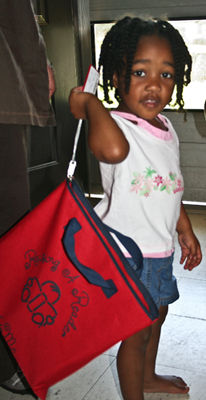
50 我们新教师的百分比之内离开这个专业 5 年. 你有什么想法就如何解决问题?
如果我们已经开始试图解决我们的问题 25 几年前, 我们现在将是在一个不同的位置. 我们需要做什么,他们在芬兰做. 我们需要改变的方式来招募, 支持, 和保留教师. 我们应该通过提高标准,为进入教学开始. 教师应具备至少一年投入到研究生的学习和实践. 新教师需要一个导师的支持. 然后,我们必须专注于保留. 工资应该更高. 尽管有许多关于改革的言论甚嚣尘上, 老师看到减薪, 包括他们的医疗保健削减. 我从老师听到所有的时间谁告诉我,他们花 $1,000-2000 每年出自己的钱购买的耗材为学生. 平均教师’ 工资在中美. 大约是美国50000美元每年. 这是一个专业,没有得到很好的报酬,这是不断受到攻击. 这是一个浪费的系统, 50 谁进入行业的人的百分比都走了五年内. 我们现在有一个系统,用于招募人才加入教师行列中,标准越来越低.
为美国而教提出了中美. $500,000,000 在过去十年中. 他们已成为慈善事业和政府投资的重点. 他们提供大学毕业生五周的暑期培训计划,然后它们被放置在教室里当老师. 他们同意留下来只有两年. 这些毕业生中也送入非常困难的学校. 当我告诉我们有老师5周教师培训的芬兰教育, 他们的眼睛只是突然. There are some states where there is no requirement for becoming a teacher other than having a college degree. In other states, teacher training is done online. We have a recruitment system that does not work, a support system that does not work, and no system to retain teachers.
Are we allocating education monies in the wrong places?
We are spending way too much on accountability right now. 此外, a very large percentage of what we do spend goes into special education, which is necessary of course. Other countries find better ways to categorize the funding. I do not think we are spending more than other countries. I think we are just allocating our monies differently. I think we should be spending more money on high quality pre-school education. 成绩差距不是由学校创建. The achievement gap begins before the children are born. The parents are poor. They have no education. We see the results in every testing program. Kids who come from these poor communities do badly compared to kids who come from the other end of the spectrum. Those who live in affluent families begin life with great advantages.
What other work has to be done to support children’s schools in poor communities?
The first thing I would do would be to make sure the schools are in excellent physical condition. The condition of a school sends a message to a child. Many children are attending schools that are old and decrepit. That says to a child: “You are not considered to be worthy of a beautiful school.” A beautiful facility says “This is a safe place. This is a place where you are respected.” 其次, I would want a school with teachers who are committed to teaching children and to dealing with all the social and emotional problems that poor children bring to school. Many poor children come to school hungry, many have medical issues that need to be addressed. You need teachers who are prepared for all kinds of disabilities. 接着, after the facilities are taken care of and the right teachers are in place, I would put a tremendous focus on the curriculum, especially the arts.
Successful school systems such as the one in Finland place high importance on the arts. What are we doing in America?
This is a very important topic. Many districts are cutting the arts, which is really outrageous. What I saw in Finland was that the arts are very important and center stage in every single school I visited.
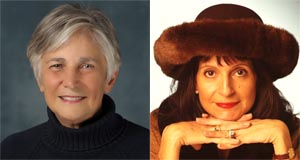
黛安·拉维奇和C. M. 鲁宾

在 全球搜索教育, 和我一样,全球知名的思想领袖,包括迈克尔·巴伯爵士 (英国), 何. 莱昂特司特因 (美国), 何. 琳达·达林 - 哈蒙德 (美国), 何. 马达夫查万 (印度), 迈克尔·富兰教授 (加拿大), 霍华德·加德纳教授 (美国), 伊冯娜赫尔曼教授 (荷兰), 克里斯汀Helstad教授 (挪威), 玫瑰Hipkins教授 (新西兰), 科妮莉亚Hoogland教授 (加拿大), 太太. 尚塔尔考夫曼 (比利时), 多米尼克·拉方丹教授 (比利时), 休·劳德教授 (英国), 本·莱文教授 (加拿大), 巴里McGaw教授 (澳大利亚), Ř教授. 纳塔拉詹 (印度), 斯瑞达拉贾戈帕兰 (印度), 何. 黛安·拉维奇 (美国), 肯·罗宾逊爵士 (英国), 帕西SAHLBERG教授 (芬兰), 安德烈亚斯·施莱歇 (PISA, 经合组织), 何. 安东尼·塞尔顿, 何. 大卫·谢弗 (美国), 何. 基尔斯滕都沉浸式 (挪威), 总理斯蒂芬·SPAHN (美国), 伊夫Theze (公立中学美语), 查尔斯Ungerleider教授 (加拿大), 托尼·瓦格纳教授 (美国), 迪伦Wiliam教授 (英国), 西奥Wubbels教授 (荷兰), 迈克尔·杨教授 (英国), 和张民选教授 (中国) 因为他们探索所有国家今天面临的大画面的教育问题. 全球搜索教育社区页面
ç. M. 鲁宾是两个广为传诵的在线系列,她接受了笔者 2011 厄普顿·辛克莱奖, “全球搜索教育”和“如何将我们阅读?“她也是三本畅销书, 其中 真正的爱丽丝梦游仙境.

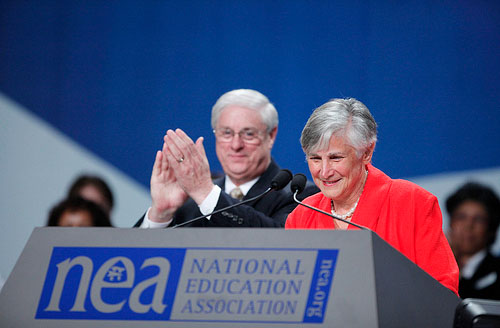
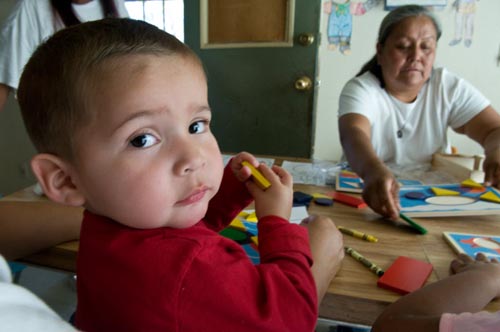
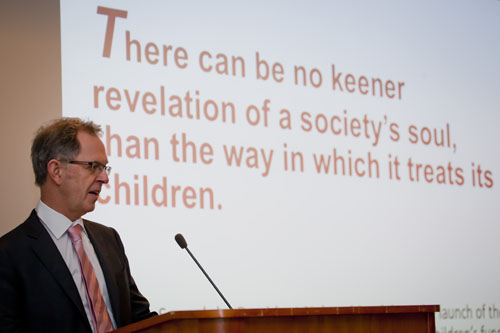
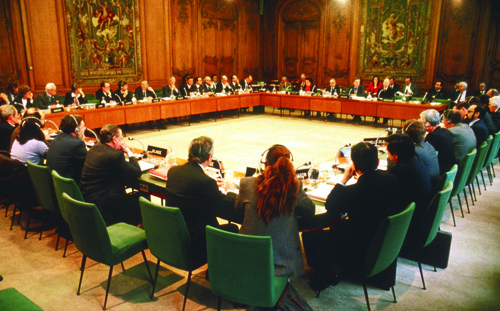
最新评论